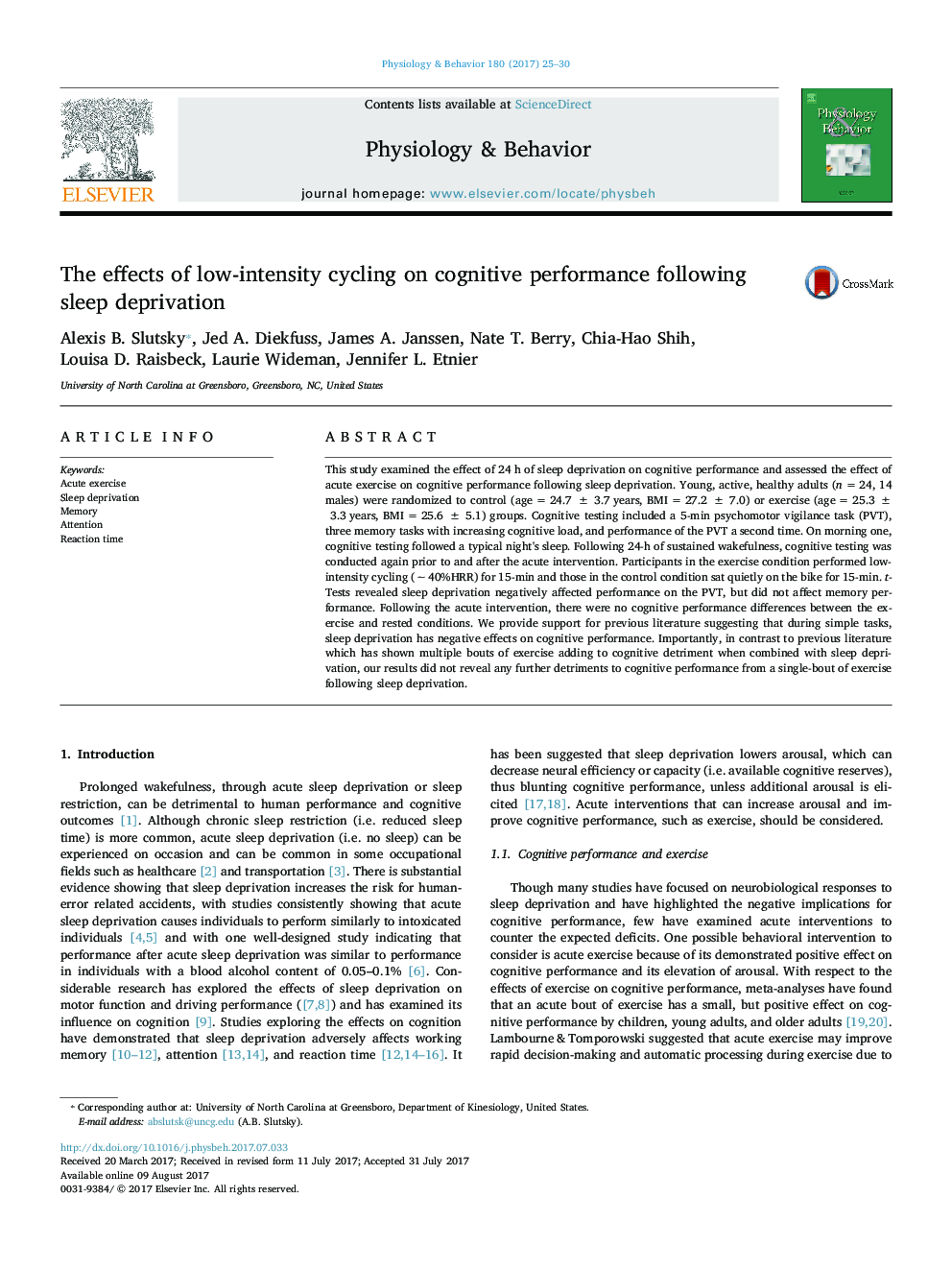| Article ID | Journal | Published Year | Pages | File Type |
|---|---|---|---|---|
| 5593593 | Physiology & Behavior | 2017 | 6 Pages |
Abstract
This study examined the effect of 24 h of sleep deprivation on cognitive performance and assessed the effect of acute exercise on cognitive performance following sleep deprivation. Young, active, healthy adults (n = 24, 14 males) were randomized to control (age = 24.7 ± 3.7 years, BMI = 27.2 ± 7.0) or exercise (age = 25.3 ± 3.3 years, BMI = 25.6 ± 5.1) groups. Cognitive testing included a 5-min psychomotor vigilance task (PVT), three memory tasks with increasing cognitive load, and performance of the PVT a second time. On morning one, cognitive testing followed a typical night's sleep. Following 24-h of sustained wakefulness, cognitive testing was conducted again prior to and after the acute intervention. Participants in the exercise condition performed low-intensity cycling (â¼Â 40%HRR) for 15-min and those in the control condition sat quietly on the bike for 15-min. t-Tests revealed sleep deprivation negatively affected performance on the PVT, but did not affect memory performance. Following the acute intervention, there were no cognitive performance differences between the exercise and rested conditions. We provide support for previous literature suggesting that during simple tasks, sleep deprivation has negative effects on cognitive performance. Importantly, in contrast to previous literature which has shown multiple bouts of exercise adding to cognitive detriment when combined with sleep deprivation, our results did not reveal any further detriments to cognitive performance from a single-bout of exercise following sleep deprivation.
Related Topics
Life Sciences
Biochemistry, Genetics and Molecular Biology
Physiology
Authors
Alexis B. Slutsky, Jed A. Diekfuss, James A. Janssen, Nate T. Berry, Chia-Hao Shih, Louisa D. Raisbeck, Laurie Wideman, Jennifer L. Etnier,
